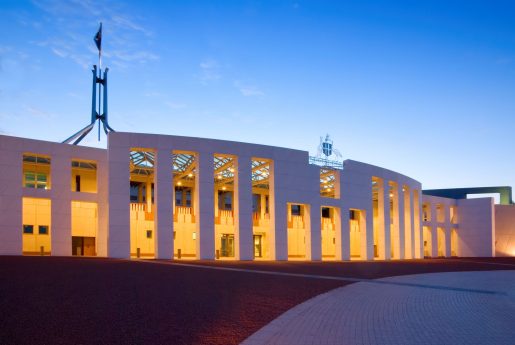
What does the 2023/2024 Federal Budget mean for you?

The Federal Treasurer, Dr Jim Chalmers, handed down the 2023–24 Federal Budget at 7:30 pm (AEST) on 9 May 2023.
As promised, no changes were announced to the Stage 3 personal income tax cuts legislated to commence in 2023–24.
As part of the measures introduced for small business, a temporary $20,000 threshold for the small business instant asset write-off will apply for one year, following the end of the temporary full expensing rules.
The government aims to lower the tax related administrative burden for small and medium businesses by providing additional funding to the ATO to increase access to tax advice and assistance.
However, funding will also be provided to expand the scope of the ATO’s personal tax compliance program to address emerging areas of risk, such as deductions relating to short-term rental properties to ensure they are genuinely available to rent.
Additionally, the ATO’s GST compliance resources will be expanded to support the development of more sophisticated analytical tools to address emerging risks to GST revenue.
We are pleased to provide you with this brief summary of the main impacts for you, and as always, welcome your questions to our team.
Businesses
Small business depreciation — instant asset write-off threshold of $20,000 for 2023-24
- The instant asset write-off threshold for small businesses applying the simplified depreciation rules will be $20,000 for the 2023–24 income year.
- Small businesses (turnover less than $10 million) can apply the immediate write-off for low-cost depreciating assets.
- The measure will apply to eligible assets costing less than $20,000 first used or installed between 1 July 2023 and 30 June 2024. The $20,000 threshold will apply on a per asset basis, so small businesses can instantly write-off multiple low-cost assets.
Increased deductions for small and medium business expenditure on electrification and energy efficiency
- An additional 20% deduction will be available for small and medium business expenditure supporting electrification and energy efficiency.
- The additional deduction will be available to businesses with aggregated annual turnover of less than $50 million.
- Eligible expenditure may include the cost of eligible depreciating assets, as well as upgrades to existing assets, that support electrification and more efficient use of energy.
- Certain exclusions will apply, including for electric vehicles, renewable electricity generation assets, capital works, and assets not connected to the electricity grid that use fossil fuels.
- Total eligible expenditure for the measure will be capped at $100,000, with a maximum additional deduction available of $20,000 per business.
- When enacted, the measure will apply to eligible assets or upgrades first used or installed ready for use between 1 July 2023 and 30 June 2024.
FBT exemption for eligible plug-in hybrid electric cars to end
- The FBT exemption for eligible plug-in hybrid electric cars will end from 1 April 2025.
- Arrangements involving plug-in hybrid electric cars entered into between 1 July 2022 and 31 March 2025 remain eligible for the exemption.
Lowering the tax-related administrative burden for small and medium businesses
- From 1 July 2024, small businesses will be permitted to authorise their tax agent to lodge multiple Single Touch Payroll forms on their behalf, reducing paperwork for small businesses.
- From 1 July 2025, small businesses will be permitted up to 4 years to amend their income tax returns, reducing the burden of making revisions.
Temporary amnesty for late lodgers
- A lodgement penalty amnesty program is being provided for small businesses with aggregated turnover of less than $10 million to encourage them to re-engage with the tax system.
- The amnesty will remit failure-to-lodge penalties for outstanding tax statements lodged in the period from 1 June 2023 to 31 December 2023 that were originally due during the period from 1 December 2019 to 29 February 2022.
Individuals
Workforce participation incentive measures extended
- The workforce participation incentive measures to support pensioners who want to enter the workforce, or work more hours, without impacting their pension payments will be extended for another 6 months to 31 December 2023.
- Originally announced in the Labor government’s 2022–23 Budget, the measure provides age and veterans pensioners a once-off credit of $4,000 to their Work Bonus income bank and temporarily increases the maximum income bank.
- Under this measure, pensioners can earn up to $11,800 before their pension is reduced.
Superannuation
Reducing tax concessions for superannuation balances exceeding $3 million
- Superannuation earnings tax concessions will be reduced for individuals with total superannuation balances in excess of $3 million.
- From 1 July 2025, earnings on balances exceeding $3 million will incur a higher concessional tax rate of 30% (up from 15%) for earnings corresponding to the proportion of an individual’s total superannuation balance that is greater than $3 million.
- Earnings relating to assets below the $3 million threshold will continue to be taxed at 15%, or zero if held in a retirement pension account.
Employers to be required to pay super guarantee on payday from 1 July 2026
- Employers will be required to pay their employees’ superannuation guarantee (SG) entitlements at the same time as they pay their salary and wages from 1 July 2026. This measure will require significant consultation to ensure the policy intent and the practicalities align.
- Employers are currently required to make SG contributions for an employee on a quarterly basis to avoid incurring a superannuation guarantee charge.
- In addition, funding will be provided to the ATO to, among other things, improve data matching capabilities to identify and act on cases of SG underpayment.
NALI provisions which apply to expenditure incurred by superannuation funds will be amended
- Limiting income of SMSFs and small APRA regulated funds that are taxable as NALI to twice the level of a general expense (originally five times).
- Contributions will not be taxed as NALI.
- Exempting expenditure that occurred prior to the 2018–19 income year.
For more details please access our full budget report here.

